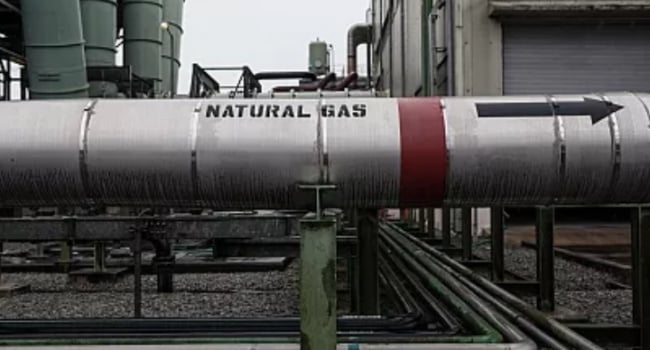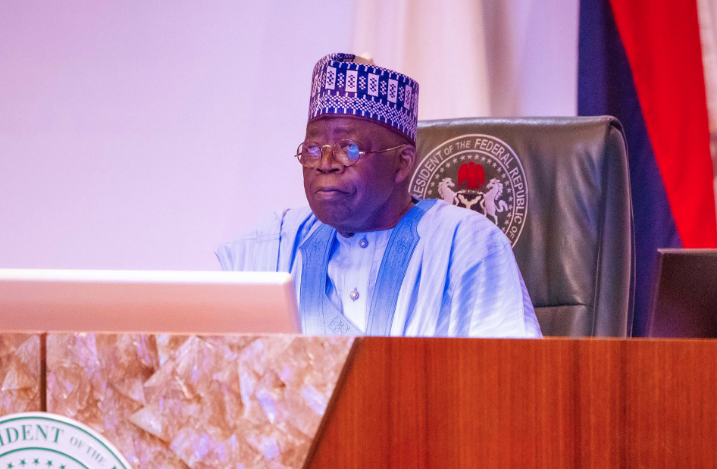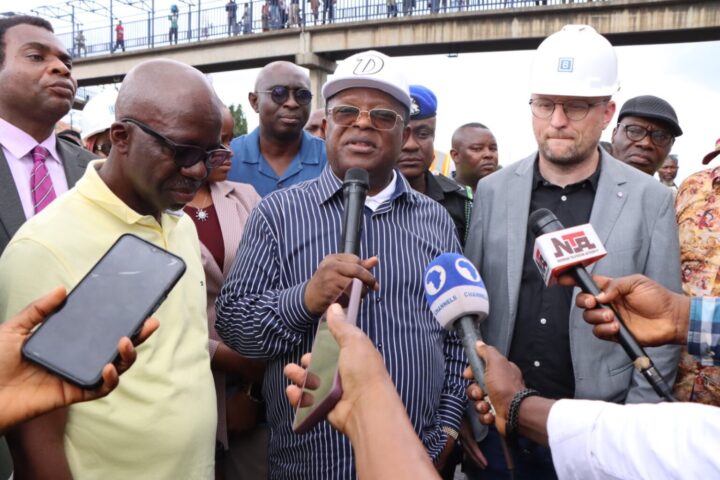BY RINRET BEST
Nigeria faces challenges in gas pipeline projects coupled with geopolitical uncertainties (EFCC, 2024).
Africa needs an energy transition that addresses energy poverty, and natural gas will play a significant role. Africa’s industrialization is partially dependent on the expansion of natural gas usage because Africa possesses 13% of natural gas and 7% of world oil reserves with more than 5,000 billion cubic meters (bcm) of natural gas resources available.
However, if utilized, it has the potential to supply 90 bcm of gas annually by 2030. This is crucial for fertilizer, steel, cement, and water desalination industries. Even if the gas resources are explored for the next three decades, the projected cumulative CO2 emissions would be approximately 10 gigatonnes, which will still not raise Africa’s share of global emissions to more than 3.5% if added to its current total.
Advertisement
The West African Coup
In July 2023, Niger experienced a military coup, leading to the overthrow of its government. Despite several unsuccessful attempts by the Economic Community of West African States (ECOWAS) to reconcile the situation, ECOWAS decided to impose stringent sanctions on Niger, including border closures, financial transaction suspensions, and freezing of assets in foreign banks, marking the most severe sanctions ever imposed by the bloc.
Niger, Burkina Faso, and Mali formed an “Alliance of Sahel States” and withdrew from ECOWAS on January 28, 2024. This move has raised uncertainties about the future of the Trans-Saharan gas pipeline project. Despite its advantages over the Nigeria-Morocco gas project in terms of cost and technical aspects, as it avoids the Atlantic Ocean, the withdrawal has created doubts about its continuation. Additionally, the project traverses only Niger, with a considerable portion of its funding allocated to this country.
Advertisement
A recent update from ECOWAS on February 24th and 25th where the sanctions have now been lifted based on “humanitarian grounds”. Nevertheless, will Niger evaluate the economic advantages of the Trans-Saharan pipeline and decide to proceed with its implementation despite withdrawing from ECOWAS? This is because the pipeline offers the potential for Niger to monetize its recoverable gas reserves (estimated at 34 bcm), while the country currently produces around 20,000 barrels per day of oil and limited gas. Additionally, Niger is expected to soon activate the 110,000 b/d Niger-Benin oil pipeline, built by China. However, the departure of the three member states from ECOWAS introduces risks and uncertainties to the stability of this project.
Nigeria’s Gas Potential and Development
Nigeria’s Gas Master Plan focuses on utilizing natural gas for domestic electricity generation and consumption. As part of this plan, the development of internal energy gas infrastructure, such as the AKK gas pipeline (614 km), aims to transport 3,500 million metric standard cubic feet per day of dehydrated wet gas in the South to the North. This project is expected to boost Nigeria’s electricity generation capacity by adding 3,600 MW of power to the national grid, revive the textile industries in the North and supply gas as feedstock for new power plants and petrochemical facilities at Abuja, Kaduna, Kano and Katsina.
Additionally, this pipeline serves as the initial phase of the larger Trans-Saharan pipeline project. Nigeria has announced that the 2020s will be designated as a “Decade of Gas”, and the plan is to attract $14 billion in foreign direct investment, raise $12 billion in revenue through royalties and taxes and create two million jobs by 2030. Also, the Nigeria Energy Transition Plan (ETP) outlines Nigeria’s pathway to achieving carbon neutrality by 2060 using natural gas as the transition fuel.
Advertisement
What is next for Nigeria?
Nigeria, with a proven gas reserve of over 200 trillion cubic feet, is striving to capitalize on its gas resources and emerge as the primary exporter of liquefied natural gas (LNG) to international markets. However, there are still several challenges that the Nigerian Government must address to exploit the potential of the country’s gas reserves fully. These issues include, but are not limited to completion of domestic gas infrastructure, re-establish investors’ confidence in the industry, securing foreign investments and fast tracking the Nigeria-Morocco gas pipeline.
Russia has halted operations on both the Nord Stream 1 and Nord Stream 2 gas pipelines, which collectively supply 110 billion m3 of gas to Europe, due to the severe effects of the Russian-Ukraine war. This has compelled Europe to seek diversification in its gas imports. Despite Africa’s proximity to Europe (around 14 km), it has yet to gain significant attention in the European energy market. Now is the opportune moment for Africa, especially Nigeria to develop its gas reserves for international trade.
However, the completion of the AKK pipeline (scheduled to be completed by July/August of 2024) is a major setback for the country to monetize its gas resources. The development of domestic gas pipeline infrastructure projects will help turn Nigeria into a gas-enabled economy, by utilizing natural gas as an alternative transportation fuel, and an important feedstock for the development of gas-based industries.
Advertisement
While using the revenue to develop renewable energy capacity and fund the Nigerian Gas Expansion Plan. Additionally, the development of essential gas infrastructure will greatly decrease natural gas flaring and increase its supply. The natural gas flared in Nigeria could potentially produce about 1.125 gigawatts (GW) of electricity for the nation. Nigeria’s gas production must be boosted from 22 million tonnes to about 30 to 40 million tonnes in the next few years. This is because it is all about the volume for gas production, which must be made available both for domestic use and export markets.
To re-establish investors’ confidence in the industry, one thing the government must do is ensure a cost reflective gas pricing. Nigeria will also need to resolve ongoing internal conflicts between International Oil Companies (IOCs) and the government, and find a balance between investor needs and state interests by addressing concerns regarding the Petroleum Industry Bill (PIB). The Nigerian government must now strategise to push for energy investments especially towards high technological processing facilities for petrochemical and methanol investments.
Advertisement
Recent developments indicate the Nigerian government’s efforts to accelerate discussions with Morocco to expedite the Final Investment Decision (FID) for the Nigeria-Morocco Gas Pipeline. Talks held on January 24, 2024, between Nigeria’s Minister of State for Petroleum Resources (Gas) and Morocco’s Minister of Energy Transition and Sustainable Development underscored this effort. However, the final investment decision remains pending. Concerns arise regarding the pipeline’s capacity limitations, with the offshore segment restricted to a 20-inch diameter pipe, allowing only 5 billion cubic meters (bcm) of gas per year. With Ghana, Togo, and Benin set to extract 2 bcm, and Morocco around 1 bcm, Nigeria’s allocation for exports is limited to 3 bcm. Consequently, only around 2 bcm will reach Europe, posing minimal impact on its current energy market.
The Nigeria-Morocco gas pipeline project faces significant technical and economic challenges due to the projected 25-year construction time and the need for substantial foreign investments ($20-25 billion). Compared to the WAGP (678 km) gas pipeline, which took 28 years to complete, the proposed pipeline is nearly 8 times longer, raising doubts about its feasibility within the estimated timeframe. Concerns arise regarding the possibility of Nigeria being left with stranded assets, particularly in light of the EU’s energy transition policy, which forecasts a substantial decline in natural gas demand by 2045. As EU countries transition to renewable energy sources, the political and economic significance of the pipeline project may change.
Advertisement
For now, it needs to be clarified to determine which of these issues relating to both pipeline projects, and the oil and gas industry will be easier to address first by the Nigerian Government. Ultimately, the decision regarding which projects to prioritize, implement, or postpone lies with the Nigerian Government.
Name: Rinret Best
Advertisement
Short Bio: Rinret Best has a masters degree in Environmental Sustainability and Green Technology from Keele University, UK. She currently serves as the Head of Compliance, Sustainability, and Energy Research at Meyana Energy, a company dedicated to promoting sustainability and renewable energy solutions across Africa. Meyana Energy focuses on leveraging clean fuels (from natural gas and biogas) and innovative energy systems to meet the continent’s growing energy needs while advancing climate goals.
How I can be reached:
LinkedIn: Rinret Best
Views expressed by contributors are strictly personal and not of TheCable.
Add a comment






